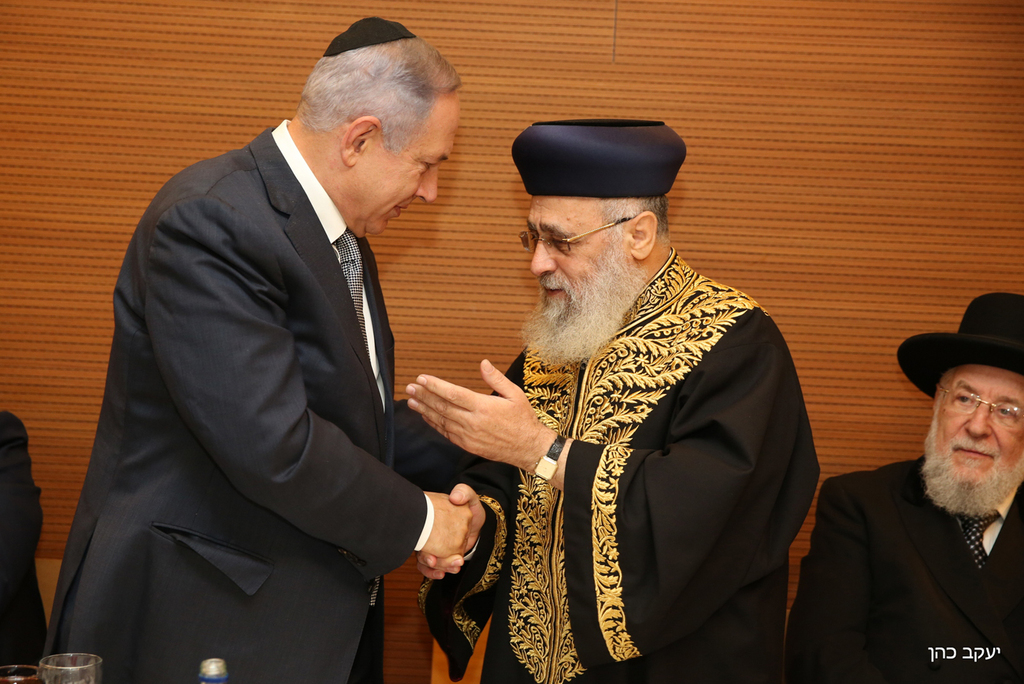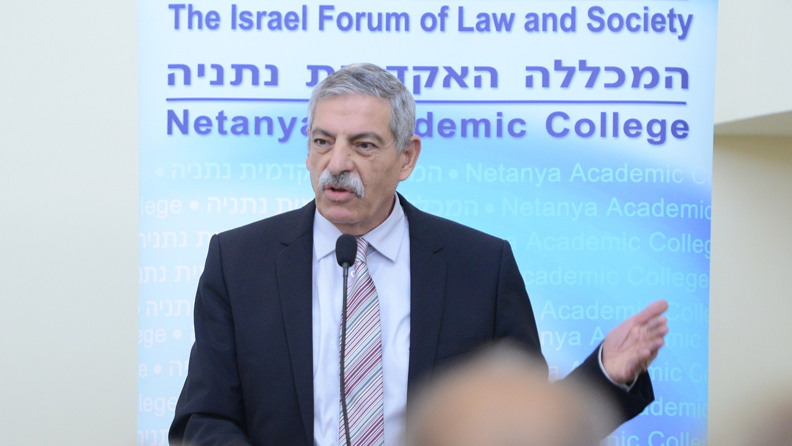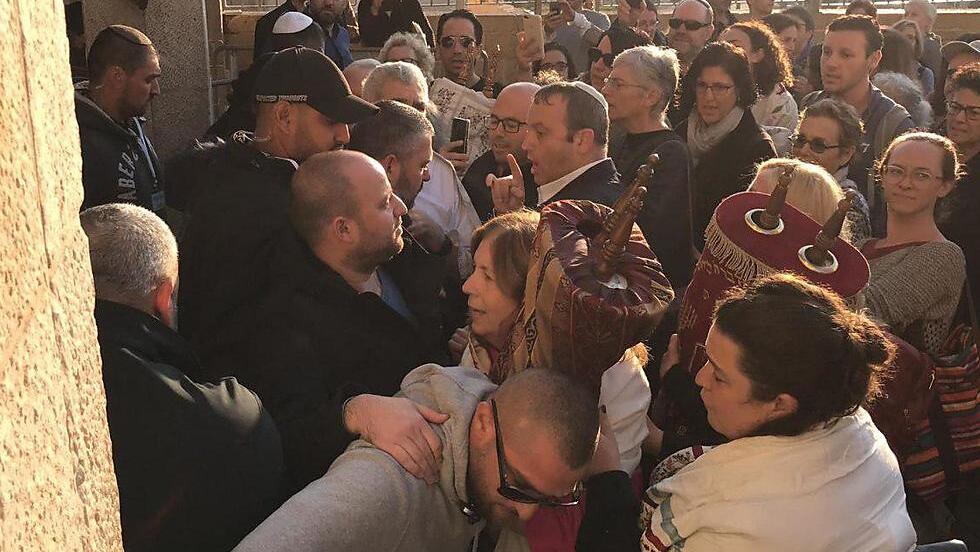Getting your Trinity Audio player ready...
Religious Affairs Minister Yaakov Avitan has refused to take steps that would see Sephardi Chief Rabbi Yitzhak Yosef ousted as a rabbinical judge for comments disparaging women, the Supreme Court and the Reform movement.
Ombudsman of the Israeli Judiciary Uri Shoham, a retired Supreme Court justice, asked Avitan, a member of the ultra-Orthodox Shas party, to convene the Selection Committee for Rabbinical Judges in order to remove Yosef from his seat on the Great Rabbinical Court.
4 View gallery


Sephardi Chief Rabbi Yitzhak Yosef with Prime Minister Benjamin Netanyahu
(Photo: Yaakov Cohen)
Shoham said Yosef had made public comments claiming the Supreme Court sees itself above all else, accused the Reform Movement of perverting the Torah and declared he would block women from officially being recognized as religious scholars, despite a court ruling to the contrary.
Yosef said his comments were made in his capacity as chief rabbi and not as a member of the rabbinical court. But Shoham insisted Yosef is bound by the same rules as any other judge.
"This is not the first time the rabbi has made comments that are inappropriate for a jurist in any court and especially in the Rabbinical Court," Shoham said.
4 View gallery


Judicial ombudsman and retired Supreme Court justice Uri Shoham
(Photo: Tamir Bargig)
Under Israeli law, only the Selection Committee for Rabbinical Judges can remove a sitting judge, but the authority to convene the committee is in the hands of the religious affairs minister.
Shoham has come under fire from Interior Minister Aryeh Deri and other members of Shas and right-wing legislators, who argued the ombudsman was violating the agreed status quo between religious and state affairs.
4 View gallery


Members of the Reform and Conservative movements meet with President Reuven Rivlin in Jerusalem in 2015
(Photo: GPO)
Avitan accused Shoham of aiming to ultimately grant the Reform Movement equal footing in Jewish affairs in Israel, which that are currently entirely under the control of the ultra-Orthodox rabbinate.
"I will not allow this to happen," Avitan said. "I will act in any way under my authority to prevent Orthodox rabbis from fearing to voice their religious views and I will protect the rabbinical courts."
The Orthodox control over religious affairs has been a bone of contention between Israel and Jewish communities around the world - in particular in North America, where most Jews are non-Orthodox.
4 View gallery


Police and ultra-Orthodox worshippers prevent members of the Women of the Wall organization from praying with Torah scrolls at the Western Wall
(Photo: Conservative Movement)
In 2017, under pressure from the ultra-Orthodox parties in his coalition, Prime Minister Benjamin Netanyahu's government went back on a commitment to dedicate a section of the Western Wall for non-Orthodox worship.
The decision left the entire holy site in the hands of the ultra-Orthodox and caused a rift with the Reform and Conservative movements.

